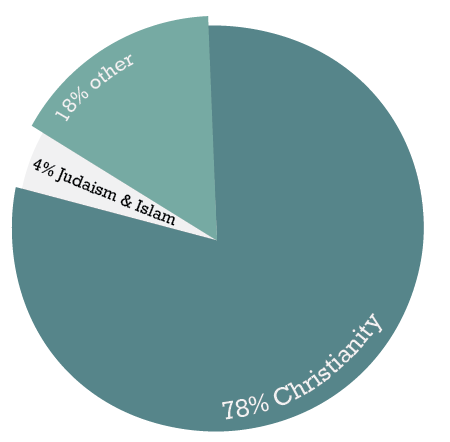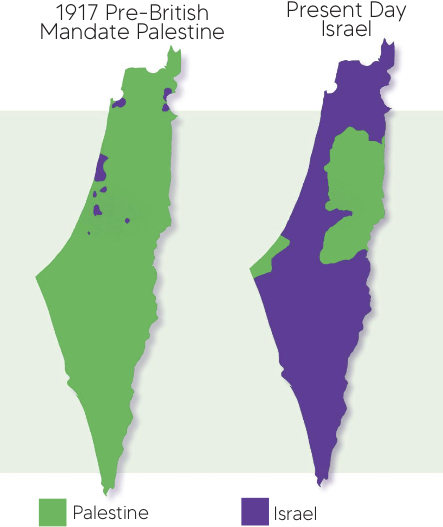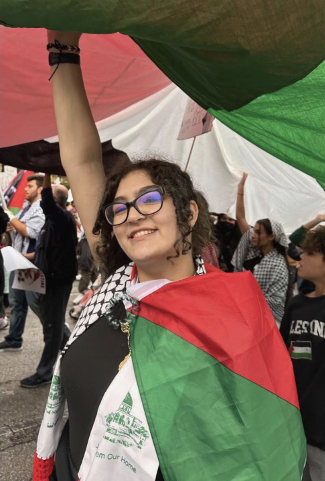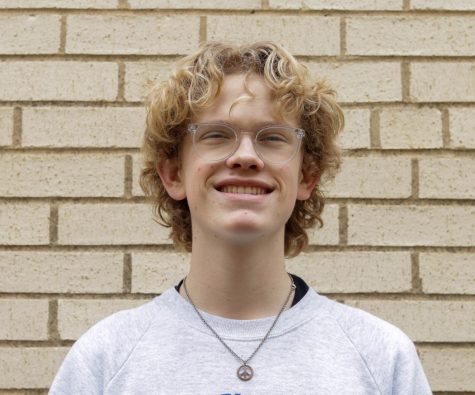Minority religions in North Texas such as Judaism and Islam make up only 4 percent of the population, with Christianity taking up 78 percent.

The Muslim and Jewish populations in Dallas are estimated to be 30,000 and 70,000, compared to over 1.1 million other people who identify as Christian or non-religious.
***
The Muslim community in Flower Mound is small, but tight knit according to senior Salma Ali.
“I feel like everyone knows each other here in this little community,” Ali said.
Although the Flower Mound community may be small, Islam is the fastest growing religion in the world, with over 1.9 billion followers.
Muslim communities and organizations across North Texas are spreading and growing rapidly. Organizations such as the Qalam Institute in Carrollton, a large Islamic school and mosque, have over 50,000 followers on social media. They have a full time seminary with various programs, bringing in well known speakers to spread Islamic knowledge across DFW.
Misconceptions and Islamophobia
Despite this growth, Islamophobia is still very present in the United States.
While thousands of acts of violence have occurred against Muslim-Americans, there have only been 160 terrorist suspects and perpetrators identified since 9/11.
In a report by the Muslim Public Affairs Council, or MPAC, on post-9/11 terrorism data in the country, it is shown that through government prosecution and media coverage there is a public impression that “Muslim-American terrorism is more prevalent than it really is.”
In fact, the Muslim-American community has played a key role in national security and law enforcement. The community has helped to prevent nearly two out of every five al Qaeda terrorist plots threatening the United States according to the MPAC.
According to a study by Pew Research Center, Religion and culture are the root cause of tension between Muslim societies in the Western world, illustrating the cultural divide that has led to Islamophobia’s greater presence in the United States.
Despite this national and global presence of Islamophobia, members of the IAL-FM such as senior Haziq Sheikh say they feel welcome, but that there are still misconceptions about their beliefs. Sheikh said he wishes more people understood how Islam is rooted in peace.
“In terms of what we see in the media and stuff, I feel like a lot of it ends up being the extremist versions of [Islam],” Sheikh said. “They’re not really portraying Islam the way it really should be.”
Ramadan
Ali wishes there was greater consideration for Muslim students as they take part in Ramadan, an Islamic holy month that celebrates when the Qur’an was revealed to the Prophet Muhammad.
During Ramadan, Muslims fast during daylight hours and strive to avoid any impure thoughts or immoral behavior, while praying five times throughout the day.
“We have to do two prayers during school, but we have to miss it,” Ali said.
Ramadan awareness is being encouraged in schools with the Department of Education in 2020 giving specific guidelines centered around allowing Muslim students protections during this period. It is mentioned in the guidelines that the students have constitutional protections permitting them to pray during non-instructional time, while not disturbing other students.
Students like Sheikh wish there was an accommodation for their weekly Jum’ah prayer which occurs every Friday. Ali believes it would be beneficial and help Muslim students if they were given an area to pray, especially during Ramadan.
“I wish we personally were more outgoing and would ask for these things ourselves,” Ali said.
Youth leader Tahir Qasem says he understands and would like to see further accommodations for students.
“It is a little more difficult to go through your daily motions,” Qasem said. “Granted, we don’t see Ramadan as a burden, it’s more so like a spiritual rejuvenation. But at the same time, we have to be really realistic and you know, it’s tough going 12 plus hours without food every day.”
While Qasem feels that the Muslim community is accepted, he said that he hopes for more understanding from the public.
“The longer that we’re here in Flower Mound, the more that people will get to know about us,” Qasem said. “I hope in the future that being a Muslim in Flower Mound or Lewisville isn’t seen as some random foreign thing but you know, just your everyday neighbor.”









